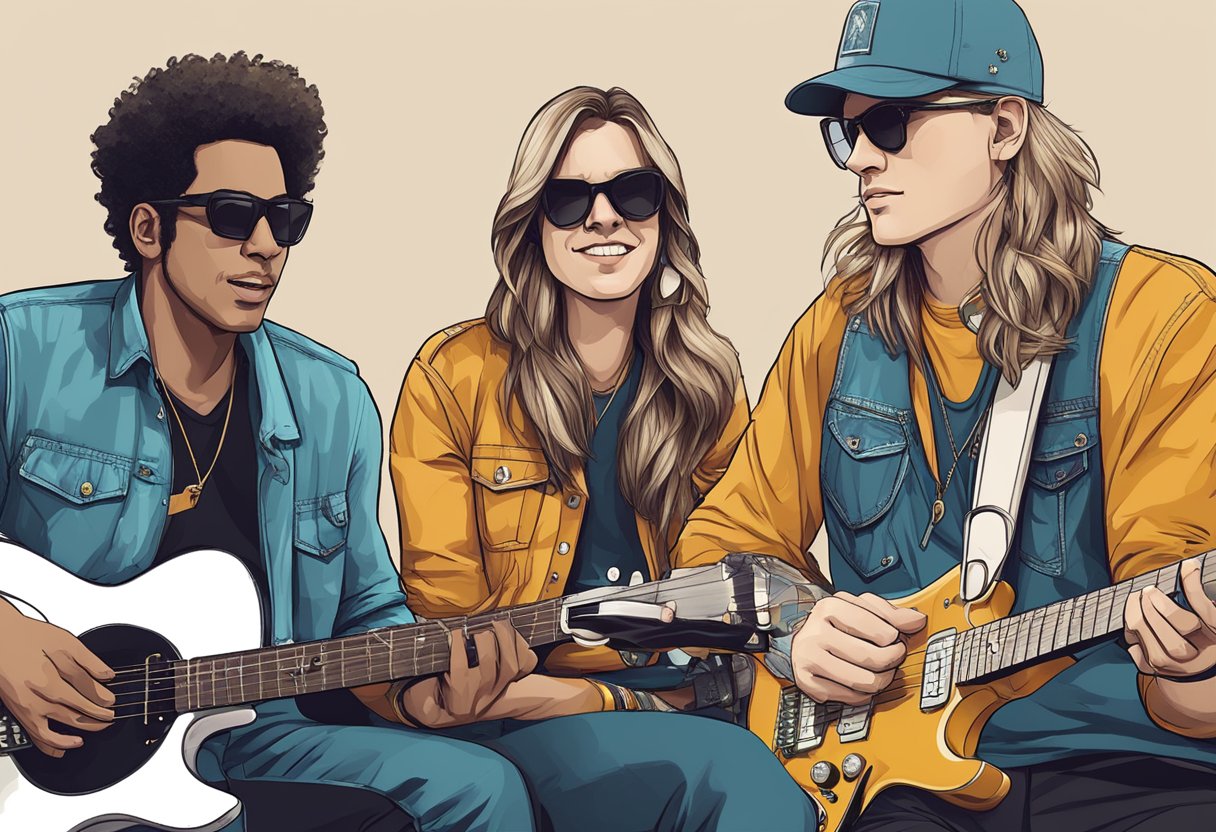Exploring the Guitar Hero Community: Insights from Elite Players
The Guitar Hero series, launched in 2005, rapidly evolved into a cultural phenomenon, turning living rooms into virtual rock stages. Behind the screens, a dedicated community thrives, consisting of gamers who have mastered the art of syncing colorful button presses with on-screen prompts to the tune of iconic rock songs. This community values skill development, sharing strategies, and showcasing their musical game prowess.

Diving into the heart of this community reveals individuals who have achieved remarkable levels of proficiency. Interviews with top players offer a window into the dedication required to excel at Guitar Hero. They share insights on their journey of personal improvement, the nuances of the game’s mechanics, and the competitive yet supportive nature of the scene.
As Guitar Hero’s influence endures with games like Guitar Hero Encore: Rocks the ’80s, enthusiasts continue to dissect their performances, striving for perfection. The dialogue with key community figures not only highlights the game’s enduring appeal but also underscores the intricate blend of entertainment and challenge that Guitar Hero offers to players worldwide.
Want to see the latest Guitar Hero items that are popular right now? Just click here!
Origins of the Guitar Hero Community

The Guitar Hero community traces its roots to the game’s inception by Harmonix in 2005. As a revolutionary rhythm game, it quickly gained a following for allowing players to experience the sensation of playing a guitar. This community blossomed around the enjoyment of music and competition, as players strived to perfect their skills.
With the release of ‘Guitar Hero II’ and the subsequent title ‘Guitar Hero III: Legends of Rock’ in 2007, which became one of the franchise’s most successful installments, the community’s growth accelerated. Online forums and social media platforms enabled fans to connect, share tips, and challenge each other’s high scores.
The community has diversified over the years, encompassing a range of players from casual enthusiasts to highly skilled experts who compete in tournaments. These top players often share their gameplay videos, engaging viewers with their expert playthroughs of the game’s most challenging songs.
The longevity of Guitar Hero’s community can also be attributed to third-party modifications and community-developed software, which allowed the game to evolve beyond its original format. This has included new song charts, customization options, and even a clone of the game that maintains the spirit of the original Guitar Hero experience.
- Key factors that nurtured the community’s growth:
- Popularity of the franchise and the rhythm game genre.
- The shared passion for music and video gaming.
- Online platforms facilitating connection and competition.
- Modifications and community-driven adaptations.
Profiles of Top Players

The profiles highlight the career distinctions and the playing methodologies of the premier Guitar Hero players, offering an insight into their success in the competitive circuit.
Career Highlights
- FrostedGH: Known for remarkable dexterity, FrostedGH has maintained a strong presence in the Guitar Hero community. His ability to consistently master difficult tracks has cemented his reputation.
- Gamo/Welldoneshellfish/Turnipsareabysmal: Tied with FrostedGH for top spot, Gamo, also known by other aliases, is celebrated for exceptional skills and adaptability across different songs and game versions.
- Randyladyman: Standing out in the Clone Hero segment, Randyladyman is recognized for his technical prowess and has contributed significantly to the game’s community.
- Jarvis9999: A newer name in the field, Jarvis9999 has quickly gained recognition due to unparalleled physical speed and precision in gameplay.
- DarklyindarknessGH: DarklyindarknessGH rounds out the top five with their consistent performance and ability to tackle complex riffs with ease.
Equipment and Techniques
- FrostedGH:
- Equipment: Standard guitar controllers optimized for response time.
- Techniques: Proficient in “tapping” which allows playing of intricate solos without strumming.
- Gamo/Welldoneshellfish/Turnipsareabysmal:
- Equipment: Variety of modified controllers for enhanced performance.
- Techniques: Mastery in “strumming” for rapid note sequences, often utilizing alternative finger positioning for efficiency.
- Randyladyman:
- Equipment: Customized input devices for improved grip and button accessibility.
- Techniques: Implements “rake strumming” to hit fast note sequences, alongside advanced hand coordination.
- Jarvis9999:
- Equipment: Focuses on controllers with heightened sensitivity.
- Techniques: Known for “stamina-based tapping,” maintaining high speed and accuracy over extended periods.
- DarklyindarknessGH:
- Equipment: Prefers controllers that have been intensely calibrated for timing.
- Techniques: Adopts a mix of traditional and innovative hand postures to navigate complex tracks effectively.
Competitive Scene Evolution
The Guitar Hero competitive scene has transitioned from local arcade leaderboards to online contests, showcasing player skills in a variety of challenging settings.
Notable Tournaments
- World Cyber Games: Once a prominent stage for top players to demonstrate their skills.
- PlayStation Network’s Guitar Hero: Competitions offered a platform for gamers to compete directly against each other online.
The intensity of these tournaments fostered a culture of achievement and recognition, cementing Guitar Hero as a staple in competitive gaming arenas.
Community Growth and Change
The community has shifted focus from pure competition to include personal improvement and entertainment. Tournaments are less frequent, but players often engage in informal challenges via streaming platforms.
- Community platforms: Reddit and Twitch have become main hubs for interaction, with subreddits and live streams allowing for continuous sharing of accomplishments.
- Ranking systems: Discussion in the community includes the potential future introduction of online play and rankings in games like Clone Hero, which could revitalize competitive play.
Future of Guitar Hero
The Guitar Hero franchise is poised for innovation with new AI technology and the community’s anticipation for more immersive gameplay experiences.
New Technological Developments
Recent remarks from Activision Blizzard CEO Bobby Kotick suggest AI technology could be a driving force in a new Guitar Hero game, potentially enhancing player immersion beyond what previous titles have offered. This could manifest in more nuanced note tracking, adaptive difficulty levels, and a more personalized gaming experience. The prospect of a Guitar Hero game for the PS5, with its powerful hardware, and possible integration with PSVR 2, indicates a significant leap from its predecessors in terms of gameplay and visual experience.
Community Aspirations
The Guitar Hero community is eager to see their beloved game thrive on modern platforms. There are discussions about features like updated song libraries with current music trends, improved guitar controllers with more realistic string and fret feedback, and online multiplayer capabilities that foster a competitive and collaborative environment. The community longs for a revival that stays true to the Guitar Hero roots while embracing new technological strides and catering to both veteran players and a new generation of rhythm game enthusiasts.






